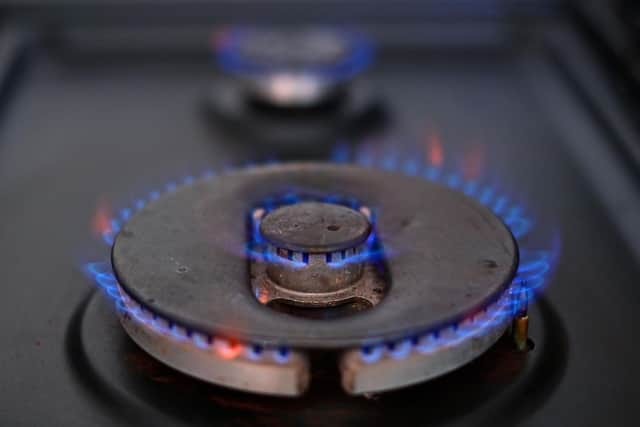Thousands of Burnley families already living in fuel poverty ahead of looming energy bill rises
and live on Freeview channel 276
The Joseph Rowntree Foundation, an independent organisation working to inspire social change, said the impending cut to the £20 Universal Credit uplift and surging energy prices could plunge people into poverty.
Some 6,507 families in Burnley – 16% of households – are already living in fuel poverty, according to government data.
Advertisement
Hide AdAdvertisement
Hide AdIn England, families are classed as being in fuel poverty if their home holds an inefficient energy rating, and their disposable income – after housing costs and energy needs – is below the poverty line.


The price of wholesale gas has surged by 250% since the beginning of the year, and by 70% since August.
Ofgem has said consumers can expect an average price rise of £135 this winter, but exactly how much it will cost a household will depend on the type of deal they are on.
Peter Matejic, deputy director of evidence and impact at The Joseph Rowntree Foundation, said the rising energy prices and axing of the £20 uplift to Universal Credit would be “devastating” to around 5.5 million families across the country.
Advertisement
Hide AdAdvertisement
Hide AdMr Matejic said: “This historic cut will have the most severe impact in areas already experiencing high levels of fuel poverty, namely Yorkshire and the Humber and the West Midlands.
“But wherever they live, millions of families across the country will immediately face unnecessary hardship and be forced to make impossible decisions between feeding their families, heating their homes, or paying the bills.
“If the Prime Minister wants to truly level up and improve living standards in the face of the rising cost of living, he must reverse this damaging cut or risk his premiership being defined by plunging people into poverty.”
A spokesperson for the UK Government said that the uplift to Universal Credit was “always temporary” and that it provides price protection for low income and vulnerable consumers on default tariffs through the energy price cap and the Warm Home Discount scheme.
Advertisement
Hide AdAdvertisement
Hide AdA Government spokesperson said: “We are investing £1.3 billion into making homes more energy efficient, cheaper to heat and helping low-income families significantly reduce their energy bills.”
“The uplift to Universal Credit was always temporary, to help claimants through the economic shock of the toughest stages of the pandemic.”
Comment Guidelines
National World encourages reader discussion on our stories. User feedback, insights and back-and-forth exchanges add a rich layer of context to reporting. Please review our Community Guidelines before commenting.